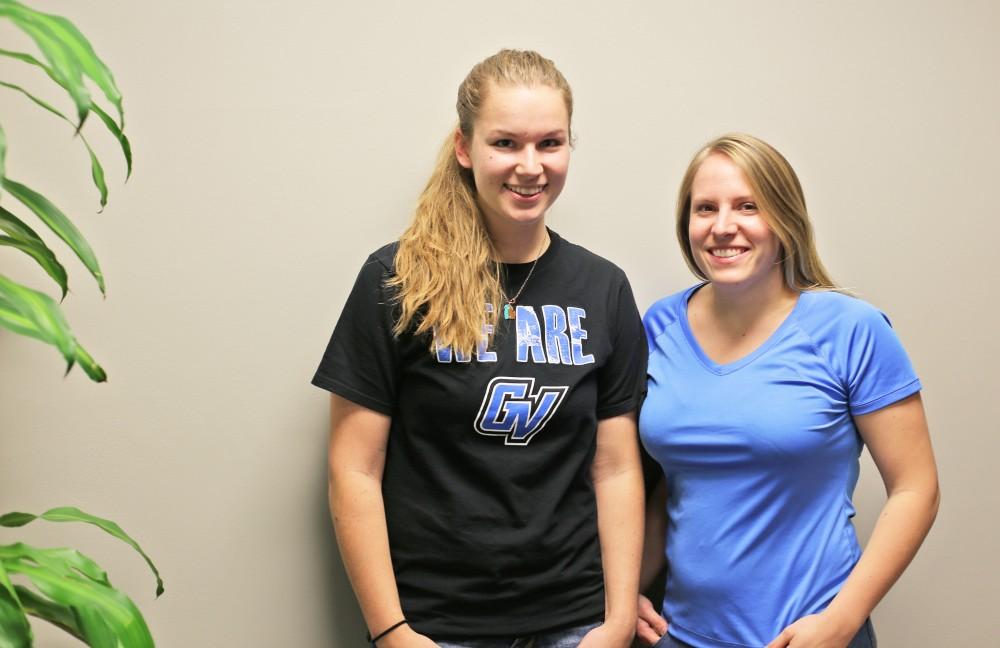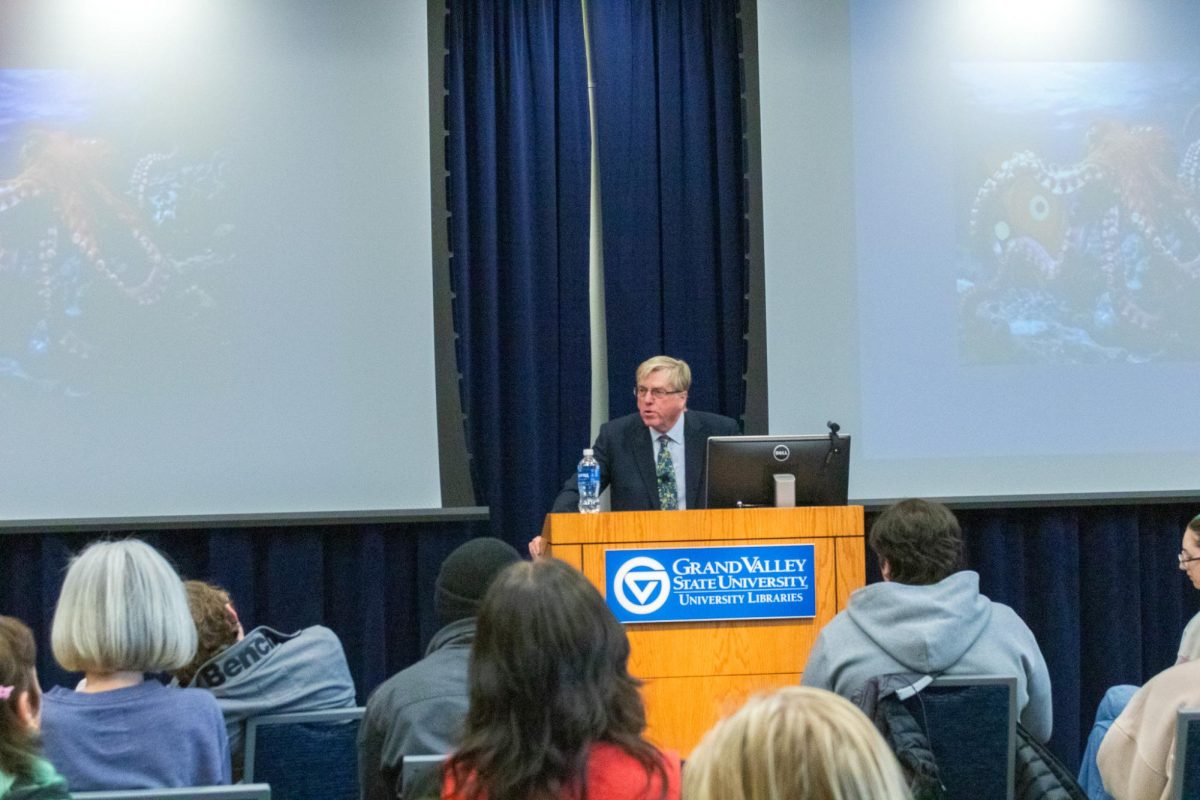Students bring entrepreneurship to GV

GVL/Kevin Sielaff Kathryn Christopher (left) and Leah Bauer (right)
Dec 4, 2014
Grand Valley State University students Leah Bauer and Kathryn Christopher are now engineering fellows with the National Center for Engineering Pathways to Innovation after their impressive work on their medical device start-up company Fluition.
The National Center for Engineering Pathways to Innovation university innovation fellows program is a nationwide network of students that aims to prepare those initiated with the skills and abilities to compete in today’s ever-changing workforce.
Christopher and Bauer were encouraged by Kevin McCurren, executive director of the Center for Entrepreneurship and Innovation, to apply for the University Innovation Fellows program.
“McCurren came to us and told us there is a program run by Stanford that aims to teach the people involved on how to bring entrepreneurship to their schools,” said Christopher, a GVSU senior and Fluition CEO. “Through the program, we hope to bring together students from the biomedical sciences to try and create more start-up companies.
“West Michigan has a vibrant biomedical community, and the programs at GVSU are great. We want a way to bring problems from the community to the students who can solve them.”
Christopher and Bauer are also helping solve problems in the community through their start-up company Fluition.
Created by five GVSU students including Bauer and Christopher, Fluition is a small company that designs medical devices for patients going through rehabilitation in the intensive care unit.
Christopher said the incentive for creating the company occurred one day in her product design class.
“In my product design class, Dr. John Farris likes to bring in sponsors from around the community,” Christopher said. “These sponsors bring in problems, and we get assigned to fix the issue. Two physical therapists came in from the Spectrum Health ICU and told us all about the problems they were having with their sit and stand devices. We basically took all the problems they were having and revamped the device completely.”
From here, the Stratus X1 device was created.
“We created a device called the Stratus X1 that helps patients in critical condition move from the sitting to standing position,” Christopher said. “It’s proven that if you get these patients in rehabilitation moving around, then they are able to recover faster.”
To improve upon previous sit and stand devices, Christopher and her fellow students added in a couple very important features.
“Our device picks up the patients by the hips rather than their arms,” Bauer said, COO of Fluition. “The device also allows the patient do some of the work on their own. If a patient can only pick up a certain percentage of their body weight, we can adjust the machine to accommodate this.”
The Stratus X1 was entered into the Michigan Collegiate Innovation Prize where it took home the Masco undergraduate prize.
“When we applied for the Michigan Collegiate Innovation Prize, we really didn’t know what we were getting ourselves into,” Christopher said. “We were one of 30 teams, and we had to start doing a lot of assignments. We realized we needed business help so we recruited some people. After the six months of training, we ended up winning the top prize of $20,000.”
The money won from this competition went toward officially incorporating Fluition.
Christopher says Fluition is filing for patenting and working on licensing agreements. By next year, she hopes Fluition will be able to do limited clinical trials and apply for FDA approval.
For more information, visit
www.fluition.org.






















